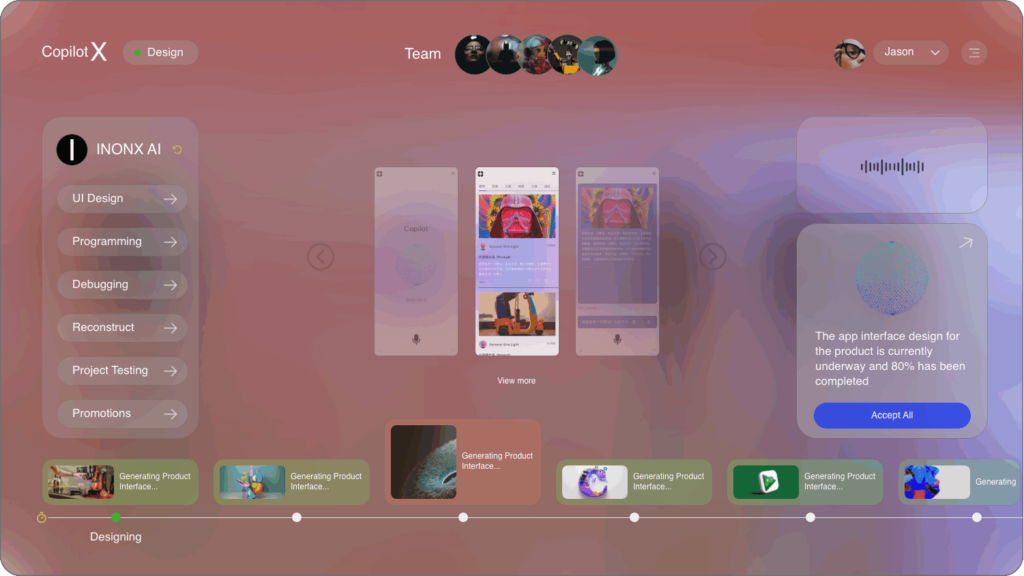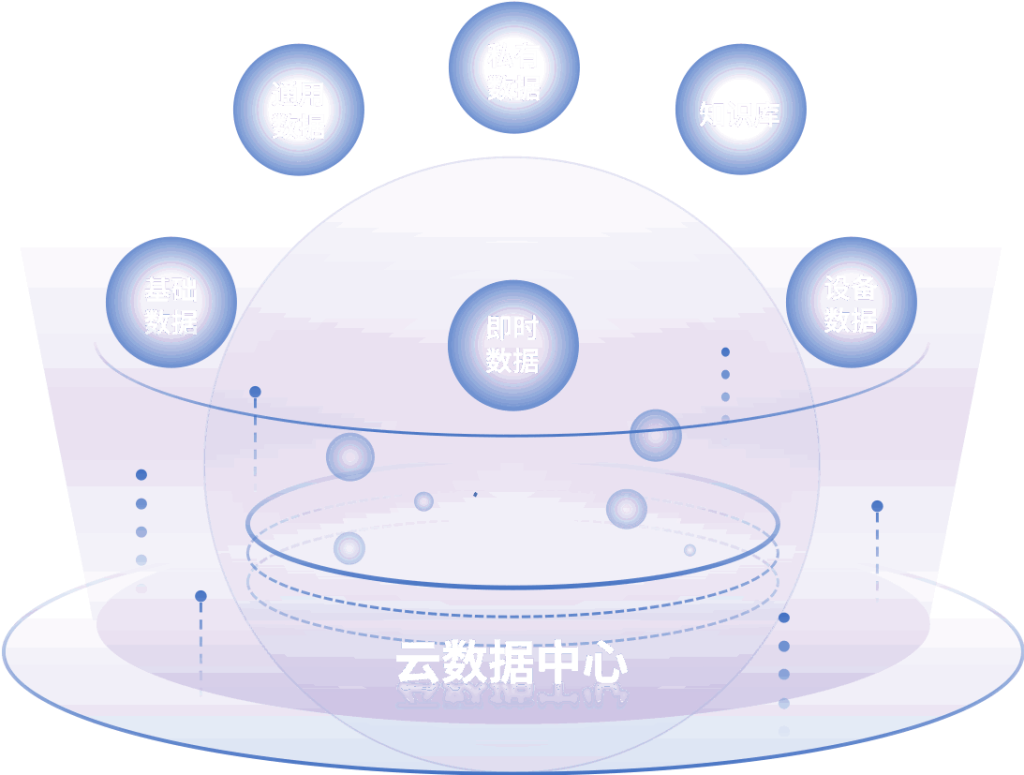Artificial Intelligence (AI) continues to evolve at an astonishing pace, with 2024 marking a particularly exciting time for advancements across various sectors. This article explores the latest AI large models, groundbreaking tools and APIs, specialized technologies, and innovative products, all contributing to the transformative potential of AI in diverse industries such as healthcare, business automation, and education.
**The Rise of Google Gemini 1.5 Pro**
One of the most noteworthy recent releases in AI is Google’s Gemini 1.5 Pro, a large language model (LLM) that boasts impressive multimodal capabilities. Gemini 1.5 Pro is designed to understand and process multiple types of data, including text, images, and audio, allowing for more nuanced interactions and outputs that align closely with human-like comprehension. This model represents an evolution from its predecessor, significantly enhancing context understanding and the ability to analyze and synthesize information from different formats seamlessly. As of early 2024, Gemini 1.5 Pro is already being leveraged across industries for tasks ranging from customer service chatbots to data analysis, emphasizing its versatility and potential for widespread application (Google AI Blog, 2024).
**Integration of Advanced Tools and APIs**
Alongside the launch of powerful models like Gemini 1.5 Pro, several advanced tools and APIs have emerged to facilitate the integration of AI capabilities across various sectors. One notable example is OpenAI’s new API, which incorporates sophisticated natural language processing and predictive capabilities. This API allows businesses to automate project management tasks by intelligently forecasting project timelines and resource needs, thereby improving efficiency and reducing overhead costs. As organizations strive for greater productivity, such tools are invaluable as they enable faster decision-making processes while minimizing human error (OpenAI Developer Insights, 2024).
Moreover, in the healthcare sector, AI-powered tools are being developed specifically for infectious disease surveillance. For instance, researchers at Stanford University have created an AI platform that utilizes large datasets from various sources, including social media and clinical reports, to predict potential outbreaks. By analyzing patterns of contagion and public behavior, this tool enhances the ability to preemptively manage and mitigate the spread of infectious diseases (Stanford Health Policy Brief, 2024).
**Emerging Technologies for Specialized Use Cases**
The ongoing efforts to refine AI models have resulted in specialized versions of LLMs that prioritize reliability and reduce biases in machine learning processes. In 2024, several organizations, including Microsoft and IBM, have announced their development of debiased language models, aimed at minimizing the ethical concerns associated with AI applications. These initiatives tackle the challenges of biased data affecting AI outputs, enabling organizations to deploy AI solutions with greater confidence in their fairness and reliability (Ethics in AI Review, 2024).
Moreover, the usage of simulation technologies in AI applications is gaining traction, particularly in the context of simulated environments for training models. These technologies create realistic representations of real-world scenarios, allowing for improved training of AI systems without the ethical and logistical challenges of real-world data collection. Industries such as automotive and aerospace are utilizing this technology for enhanced predictive maintenance and design optimization, evidencing the broad impact of simulation technologies (Tech Innovations Journal, 2024).
**Innovative Products for Diverse Industries**
The innovations in AI are not limited to large models or APIs; numerous products have emerged to cater specifically to enterprise needs. For example, a new AI platform designed for business automation has been released by Salesforce, integrating predictive analytics and customer relationship management (CRM) functionalities. This platform automates various business processes, enabling sales teams to focus on strategic initiatives rather than mundane administrative tasks, ultimately driving sales growth and improving customer satisfaction (Salesforce AI Solutions, 2024).
In the realm of cybersecurity, AI products have transformed how companies protect their digital assets. Companies like CrowdStrike and Darktrace are deploying AI-driven security solutions that utilize machine learning to detect anomalous behavior and potential threats before they manifest into significant issues. These systems provide real-time threat analysis and predictive insights, ensuring a proactive approach to cybersecurity, which is crucial in today’s rapidly evolving digital landscape (Cybersecurity Trends Report, 2024).
Additionally, the creative industries are experiencing disruption through AI-driven tools aimed at content generation, design, and video production. Platforms like Adobe’s Sensei and Runway ML offer creatives the ability to generate high-quality content rapidly, exploring new realms of creativity without sacrificing quality. These tools are enabling artists, filmmakers, and marketers to enhance their workflows and execute projects that were previously thought to be too time-consuming or resource-intensive (Creative Industries AI Review, 2024).
**Impact on Healthcare, Business Automation, and Education**
The advancements in AI are generating significant impacts across key industries like healthcare, business automation, and education. In healthcare, AI solutions enhance diagnostic accuracy, treatment personalization, and operational efficiency. By utilizing predictive analytics, hospitals can improve patient outcomes while managing costs effectively. AI-driven telemedicine platforms have also made healthcare more accessible, enabling virtual consultations and continuous patient monitoring (Healthcare AI Innovations, 2024).
In business automation, the integration of AI technologies enables organizations to streamline workflows, improve productivity, and enhance data-driven decision-making. AI-powered analytics tools can provide insights that were once out of reach for many companies, leveling the playing field in terms of competition. Furthermore, automation of mundane tasks helps employees focus on higher-level responsibilities, fostering innovation and job satisfaction (Business Innovations Quarterly, 2024).
Education is also witnessing a transformation with the integration of AI technologies. Personalized learning platforms now employ AI to tailor educational experiences to individual students, adapting content based on their unique learning styles and progress. This customization ensures that students receive support where they need it most, promoting engagement and improved learning outcomes (Education Technology Review, 2024).
**Conclusion**
The advancements in AI technology in 2024 reflect a period of immense growth and potential across multiple industries. From newly released LLMs such as Google’s Gemini 1.5 Pro, to groundbreaking tools and APIs that enable sophisticated business applications, the landscape of AI is rapidly evolving. Emerging technologies that address specialized use cases also signify a commitment to responsible and effective AI deployment. The innovations across enterprise, cybersecurity, and creative sectors are reshaping how industries operate, paving the way for an even more interconnected and enhanced future powered by AI.
References:
1. Google AI Blog (2024). “Introducing Gemini 1.5 Pro”
2. OpenAI Developer Insights (2024). “Transforming Project Management with AI”
3. Stanford Health Policy Brief (2024). “AI for Infectious Disease Surveillance”
4. Ethics in AI Review (2024). “Developing Debiased Language Models”
5. Tech Innovations Journal (2024). “The Role of Simulation Technologies in AI”
6. Salesforce AI Solutions (2024). “Enterprise Automation Through AI”
7. Cybersecurity Trends Report (2024). “AI and the Future of Cybersecurity”
8. Creative Industries AI Review (2024). “AI Tools for Creative Professionals”
9. Healthcare AI Innovations (2024). “AI’s Transformative Role in Healthcare”
10. Business Innovations Quarterly (2024). “AI-driven Business Automation”
11. Education Technology Review (2024). “Personalized Learning Through AI”


























